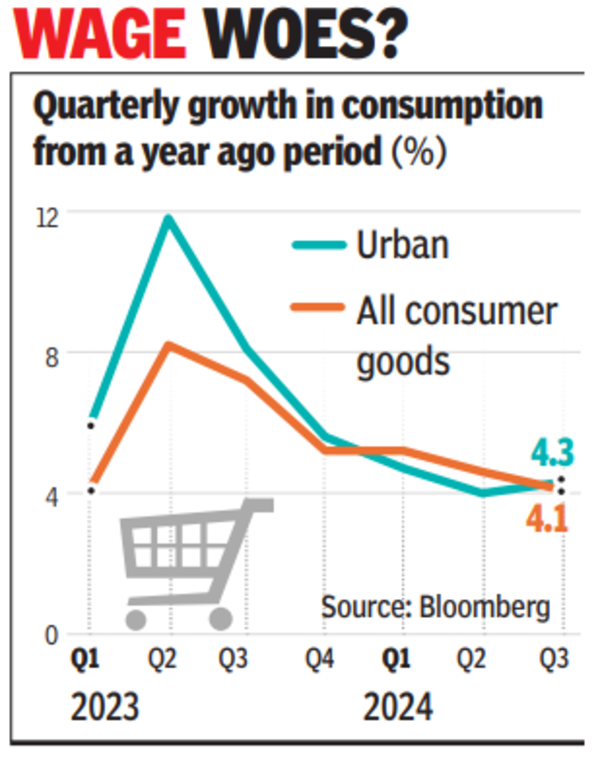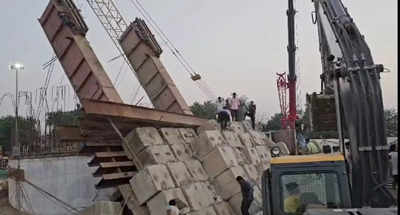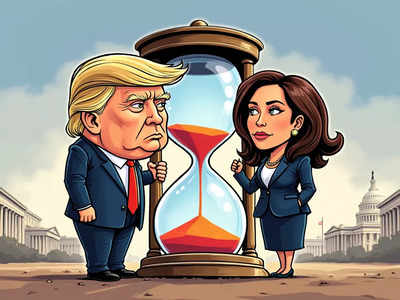Are India’s consumption hiccups signalling stress?

[ad_1]

Consumer companies in India making everything from soaps to cars are sounding the alarm: the urban middle class continues to trim its spending for at least the second straight quarter as inflation and unemployment weigh on sentiment.
At least seven of India’s largest companies, including RIL’s retail arm and consumer bellwether Hindustan Unilever, have flagged softer consumption demand and a challenging operating environment in their earnings for the July to Sept quarter.
With post-pandemic euphoria fizzling out, higher interest rates, muted wage growth and poor job prospects are hurting urban demand. While India’s rural consumers are showing signs of spending more thanks to a good monsoon season that boosted incomes in the countryside, it can’t make up for the pullback among nearly 500 million city dwellers.
Fault lines in the India consumption story bode ill for the global giants that have been relying on India’s 1.4 billion strong consumer base to fuel growth amid an economic slowdown in China. Revenue from operations for Reliance’s retail unit, India’s largest retailer, slipped 3.5% for the quarter ended Sept 30 – a fall it attributed partly to weak demand for fashion and lifestyle products.

Revival of rural demand, welcome as it is, cannot offset the shortfall in urban mass spending. For Unilever’s India unit, smaller towns and villages make up only a third of its sales, CFO Ritesh Tiwari told reporters last week. Any recovery in demand growth was a few quarters away, he said. “The pattern is quite clear that urban growth has trended down in recent quarters,” Rohit Jawa, HUL’s CEO, said after the maker of Dove soaps and Magnum ice-creams posted sluggish earnings.
The slack is now feeding into India’s growth forecasts although the country’s central bank has shown no signs of relenting on calls for rate cuts.
“Underlying demand conditions bear watching,” India’s finance ministry said in a report on Monday. Softening consumer sentiment was pointing to moderation in urban consumption, according to the report. The deceleration is showing up across sectors: Passenger vehicle sales fell for two months straight in September, while air travel has declined three out of the four months since June. India’s factory activity has been softening since July, although it registered an uptick this month.
“Companies are scaling down their salary outlays,” Sonal Varma and Aurodeep Nandi, economists at Nomura Holdings Inc. wrote in an Oct. 28 report. Firms are lowering their cost of wages reflecting a mix of weaker nominal salary growth and a leaner workforce, they wrote. “We believe this weakness in urban demand is likely to continue,” Varma and Nandi wrote, explaining that the post-pandemic surge in pent-up demand has faded, monetary policy is tight and the central bank’s crackdown on unsecured credit is hurting activity.



